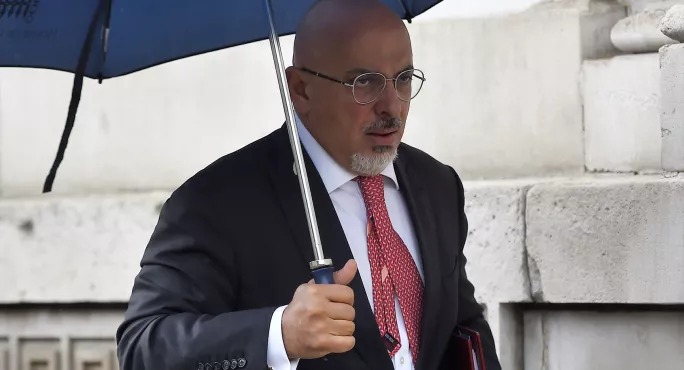Covid-related staff absence could make it impossible to keep all pupils in school, education secretary Nadhim Zahawi has admitted.
In an open letter to schools today, he urges heads to adopt flexible approaches to learning if absences do cause issues, in order to “maximise on-site education” for as many pupils as possible.
He says this should involve utilising both teaching and non-teaching workforce in schools. And he said that if schools do move to remote learning for some pupils, this should only be a short-term measure.
New Covid guidelines for schools
Schools have also been sent an email from the department for education today that reminds staff that they have a legal responsibility to provide remote education to pupils not able to be in school.
It comes after the department launched a push to persuade former teachers to return to the classroom to cope with the expected surge in Covid absences this term.
Covid: DfE urged to take urgent and immediate action
Masks: Face coverings recommended again for secondary school classrooms
Criticism: DfE air purifier plan described as ‘totally inadequate’
The department has also sent schools guidance on how to deliver hybrid learning, where some pupils are in the classroom and others are learning remotely.
Mr Zahawi’s letter and the DfE email have been sent to schools as the government announced a series of measures aimed to curb the surging number of Omicron cases as schools return for the new term.
It is now recommending that masks be worn in secondary schools and is providing 7,000 air purifiers for schools to improve ventilation.
Scaled-back Ofsted inspections
It has also said that Ofsted will not be asking serving heads to carry out inspection work and any school that is “significantly impacted” by Covid absence will be encouraged to ask for a deferral.
Mr Zahawi’s message on managing in-person learning comes as Boris Johnson tasked ministers with developing “robust contingency plans” for workplace absences.
The government has acknowledged high Covid levels could hit businesses hard over the coming weeks.
Public sector leaders have been asked to prepare for a worst-case scenario of up to a quarter of staff off work as the virus continues to sweep across the country, the Cabinet Office said.
Zahawi letter to schools
In his letter to schools, Mr Zahawi said: “I urge you to do everything in your power to protect face-to-face learning for our children and young people and am confident that you will of course make every endeavour to do so.
“I understand that a possible challenge for keeping young people in classrooms is staff absence, which is why I am continuing to call on any former teacher who can do so to come back to the classroom. You can support this effort by using your own professional and personal networks to encourage others to sign up to offer temporary help.
“However, if operational challenges caused by workforce shortages in your setting make delivery of face-to-face teaching impossible, I would encourage you to consider ways to implement a flexible approach to learning.
“Flexible delivery involves utilising all your available teaching and non-teaching workforce to maximise on-site education for as many pupils as possible while you flexibly deliver provision either on-site or remotely to some pupils.
“This should only be on a short-term measure and settings should return to full-time in-person attendance for all pupils as soon as practicable.”
Hybrid learning guidance
A document sent to schools on delivering hybrid learning says that schools should focus on lifting the experience for those at home without compromising the experience for those physically in the classroom.
It adds: “The teacher’s priority should always be those in the classroom but modifying their delivery sufficiently to enable those at home to have the best experience possible with the resources available.”





